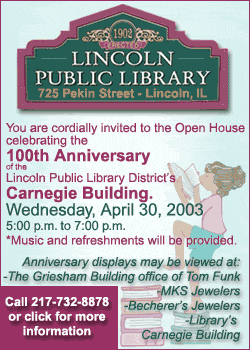|
They failed to read the class syllabus,
though, as college students tend to do. If they had read it, they
would have found that we were skipping Chapter 4 and going straight
from Chapter 3 to Chapter 5. As a result, they studied the wrong
chapter and most of them failed the quiz!
As I tell my students, there are no
trick questions on my quizzes. Grading is as follows, and the
answers appear at the end of the column. No peeking!
All 15: Inventive genius
11-14: Wise as an owl
7-10: Average
4-6: Novice
0-3: Go back to the drawing board
1. What protects an invention
from infringement for 20 years?
a. patent
b. copyright
c. trade secret
d. trademark
2. Which "bright" inventor was quoted as
saying, "Genius is 1 percent inspiration and 99 percent
perspiration"?
a. Leonardo da Vinci
b. Thomas Edison
c. Alexander Graham Bell
d. Rube Goldberg
3. Which famous invention did Mark Twain
turn down as an investment opportunity because he had recently
invested in other inventions that had failed?
a. the telegram
b. the telestrator
c. the telephone
d. the telegraph
4. Possible trick question here
TRUE
or FALSE: The inventor who perfected the Braille alphabet was
Mr. Braille.
5. Which of the following inventors was
born in the late 1300s?
a. Samuel Morse
b. Johannes Gutenberg
c. Joseph Guillotine
d. Rube Goldberg
6. The only U.S. president to receive a
patent was
a. George Washington
b. Abraham Lincoln
c. Teddy Roosevelt
d. Ronald Reagan
7. Where is the U.S. patent
office located?
a. Chicago, Ill.
b. Arlington, Va.
c. New York, N.Y.
d. Kokomo, Ind.
[to top of second column in
this article]


 |

8. TRUE or FALSE: Around 1899,
the former commissioner of the United States patent office was
quoted as saying, "Everything that can be invented -- has already
been invented."
9. TRUE or FALSE: Michael
Jackson, together with two other inventors, received a patent for an
anti-gravity device for his moonwalk shoes.
10. What protects books, plays, articles,
songs, etc. from infringement?
a. patent
b. copyright
c. trade secret
d. trademark
11. TRUE or FALSE: The first time a
U.S. patent was awarded to a woman didn't happen until the 1900s.
12. Possible trick question No. 2
TRUE or FALSE: The inventor of the World Wide Web is an English
computer scientist named Timothy Berners-Lee, not Al Gore.
13. TRUE or FALSE: Ben Franklin
invented bifocals as well as the first odometer used to measure the
routes that mail carriers traveled.
14. TRUE or FALSE: Thomas Edison holds
the record for being granted the most U.S. patents for his
inventions, with more than 1,000 patents in his name.
15. The famous inventor who designed
elaborate methods to accomplish simple tasks was
a. Rube Goldberg
b. Rube Goldberg
c. Rube Goldberg
d. All of the above

Answers:
1-a; 2-b; 3-c; 4-true; 5-b; 6-b; 7-b; 8-true; 9-true; 10-b;
11-false; 12-true; 13-true; 14-true; 15-Rube Goldberg
Readers:
To take our "First Annual 50 Questions" quiz and compete for some
nice prizes, surf on over to
www.InventionMysteries.com.
Next week:
What does this man of peace have to do
with dynamite?
[Paul
Niemann]
Paul Niemann is a contributing author to Inventors' Digest
magazine, and he also runs MarketLaunchers.com, helping people in
the marketing of their new product ideas. He can be reached at
niemann7@aol.com.
Last week's
column in LDN:
"Necessity is not the mother of invention ... these women are"
|